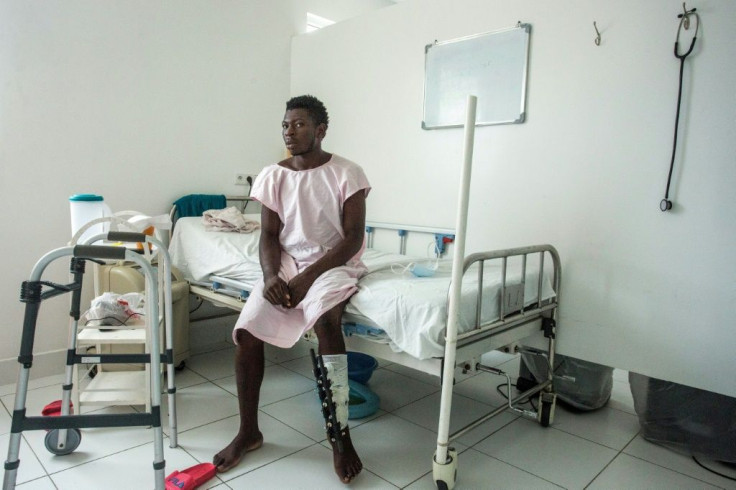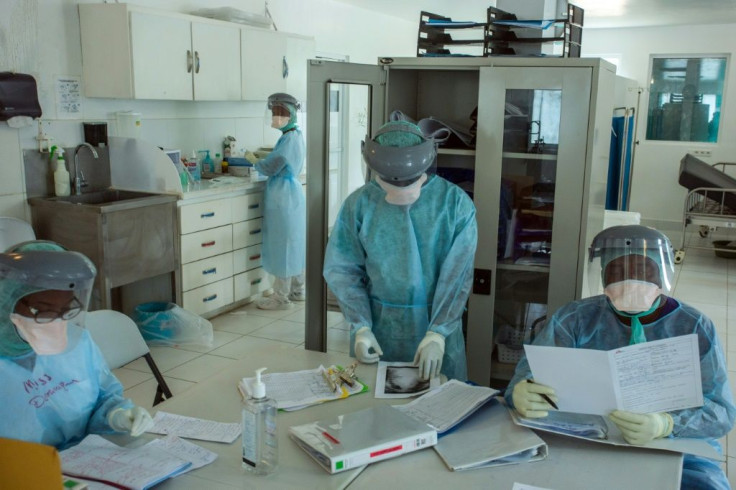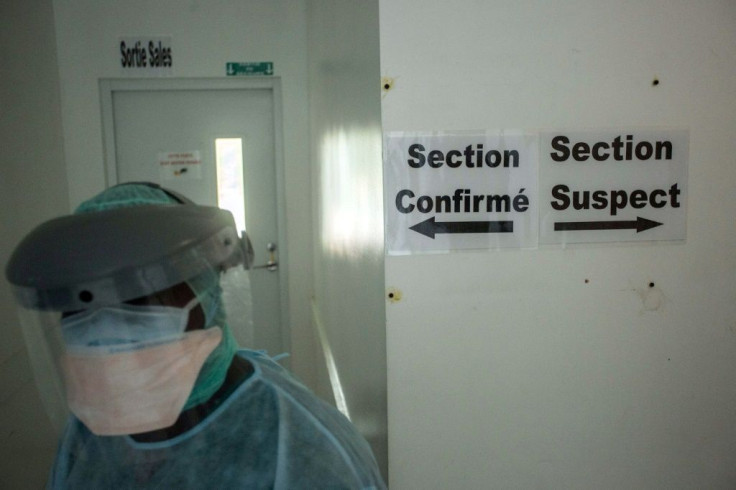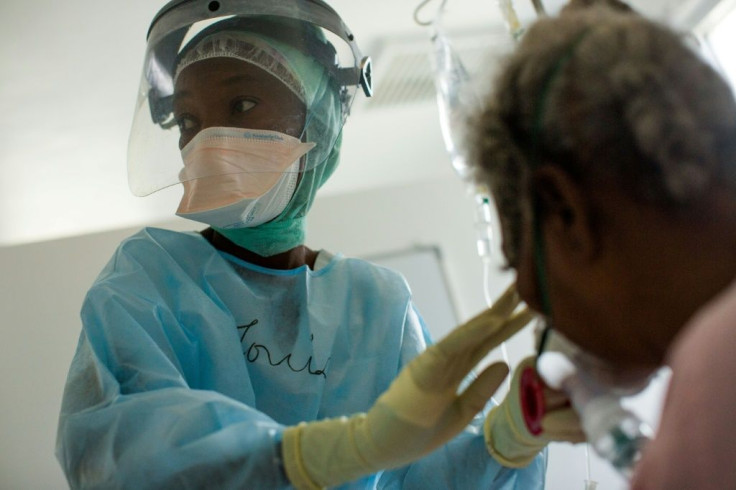In Haiti, Disbelief And Rumors Lead To Virus Deaths
On paper, Haiti so far has everything it needs to battle the coronavirus crisis -- unoccupied hospital beds, medical staff and supplies.
But in reality, the population's skepticism about whether the contagion even exists has led to a quickly mounting death toll.
"The illness is real. Many of our citizens are experiencing respiratory symptoms and other tell-tale signs," said Erneau Mondesir, a doctor who works in impoverished Cite Soleil.
"It's really important for them to believe this disease exists."

And yet, despite the hundreds of thousands of deaths around the world, medical personnel are baffled by the unwillingness of many Haitians to take the pandemic seriously.
The first cases were detected in Haiti two months ago. In recent days, an increasing number of people are reporting symptoms consistent with COVID-19, the disease caused by the virus.
They insist they have a "bit of a fever" or a "mild illness" -- but people are dying in and around the capital Port-au-Prince.
Those who are ill and relatives of those who have died refuse to believe that they are susceptible to getting sick.
Instead of seeking medical attention, some are relying on tea-based home remedies.

Mondesir works at a hospital in Cite Soleil -- located just outside the capital -- opened by Doctors without Borders (MSF). The 45-bed facility is restricted to coronavirus patients.
Two weeks after it opened, more and more people are being admitted. But there is still room for more.
"Today, one thing is clear: there are many people who stayed at home too long and then came to the hospital," explained Mondesir, the medical director for the MSF project.

"That means treating them will not be as effective at the outset," he added, before donning all of the necessary protective gear.
In the intensive care unit, oxygen machines hum and heart monitors beep -- the repetitive rhythm of the otherwise calm room.
Doctors and nurses, their names scrawled in marker on their disposable gowns, regularly check on their patients. For now, only three of 10 beds are in use.
"These are the patients in critical condition. They arrive in a coma, and with complications," said Antonio Plessy, another doctor in the unit. Behind him, an elderly man lies unconscious.
"We're trying everything: giving them high levels of oxygen, anticoagulants, antibiotics... We're doing everything until they breathe their last breath," said the anesthesiologist.

According to the latest data, published late Wednesday, there have been 50 virus-related deaths in Haiti, out of 2,640 confirmed cases.
But even the national crisis management committee acknowledges that the real figures are higher, given the relatively small number of tests conducted so far.
In a country where so many rely on the informal economy to get by, lockdown measures have been impossible to impose, and social distancing in crowded markets is a pipe dream.
Even getting people to wear a mask properly -- technically required in public spaces since May 11 -- is a challenge. Medical experts are certain that an uptick in infections is coming.
"If we can't limit the spread of this pathogen now, we can at least try to limit the damage," said Mondesir, adding that he wishes contact tracing were a viable possibility.
"It usually takes a week or two from the time that symptoms first appear for patients to show up at the hospital," he noted.
"It's very hard to trace all the people these patients have been in contact with, beyond those who live with them."
Jonel Cadet, 25, only found out he had coronavirus because he had a motorcycle accident and broke his leg.
"I developed a bit of a fever when I was in the hospital. It dropped quickly, but then they put something in my nose and then my throat, and then they told me I was infected," he said.
Before he ended up in the hospital, he was among the skeptics. He even had to convince his relatives to let him seek treatment at the MSF facility.
"I didn't believe it, and I even said the president was talking nonsense," he said with a laugh.
"It was only by coming here that I really started to believe, because I saw people who were much worse off."
Beyond the general skepticism that reigns in Haiti, there are also those who believe a rumor that any treatment involving a needle in a coronavirus treatment center will be deadly.
"My brother thought they would kill me at the hospital," said Cadet, who has now recovered after two weeks of inpatient care.
"I told him God would decide. But no, it has to be said -- no one kills people at hospitals."
Cadet advises his countrymen to "wear masks, and then there you go, no corona."
His broken leg is now healing in an exterior metal brace, and he is eagerly awaiting a return to a "normal" hospital as it heals.
© Copyright AFP 2024. All rights reserved.





















